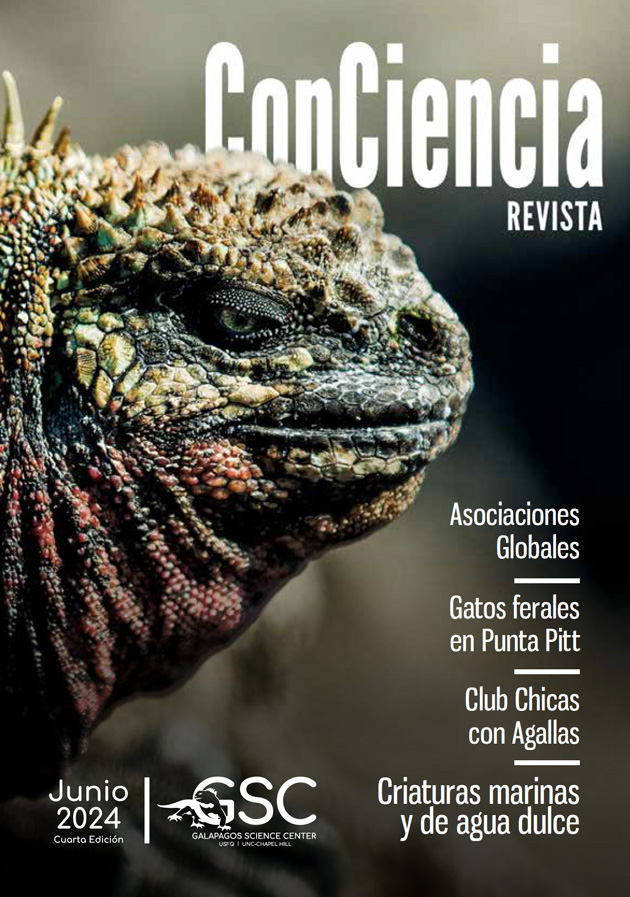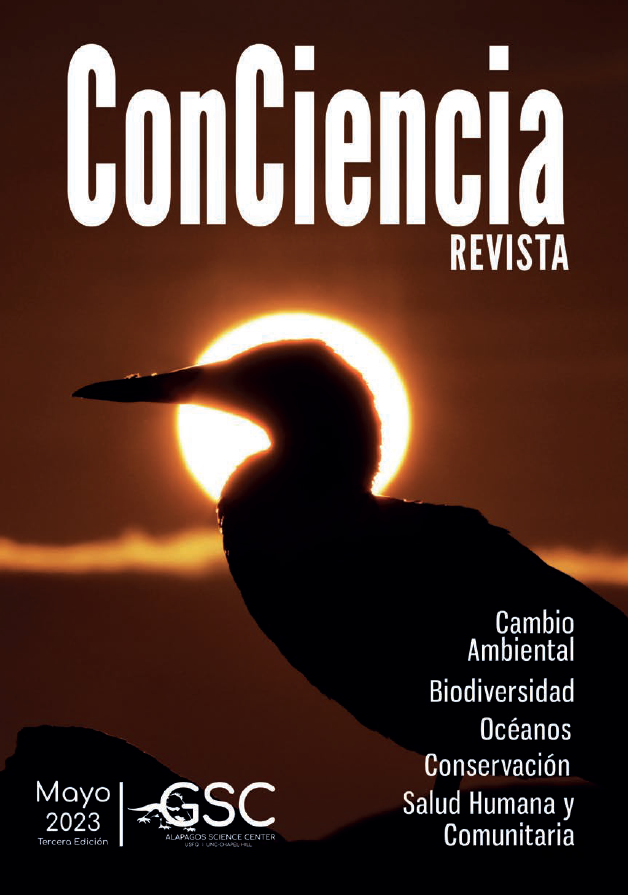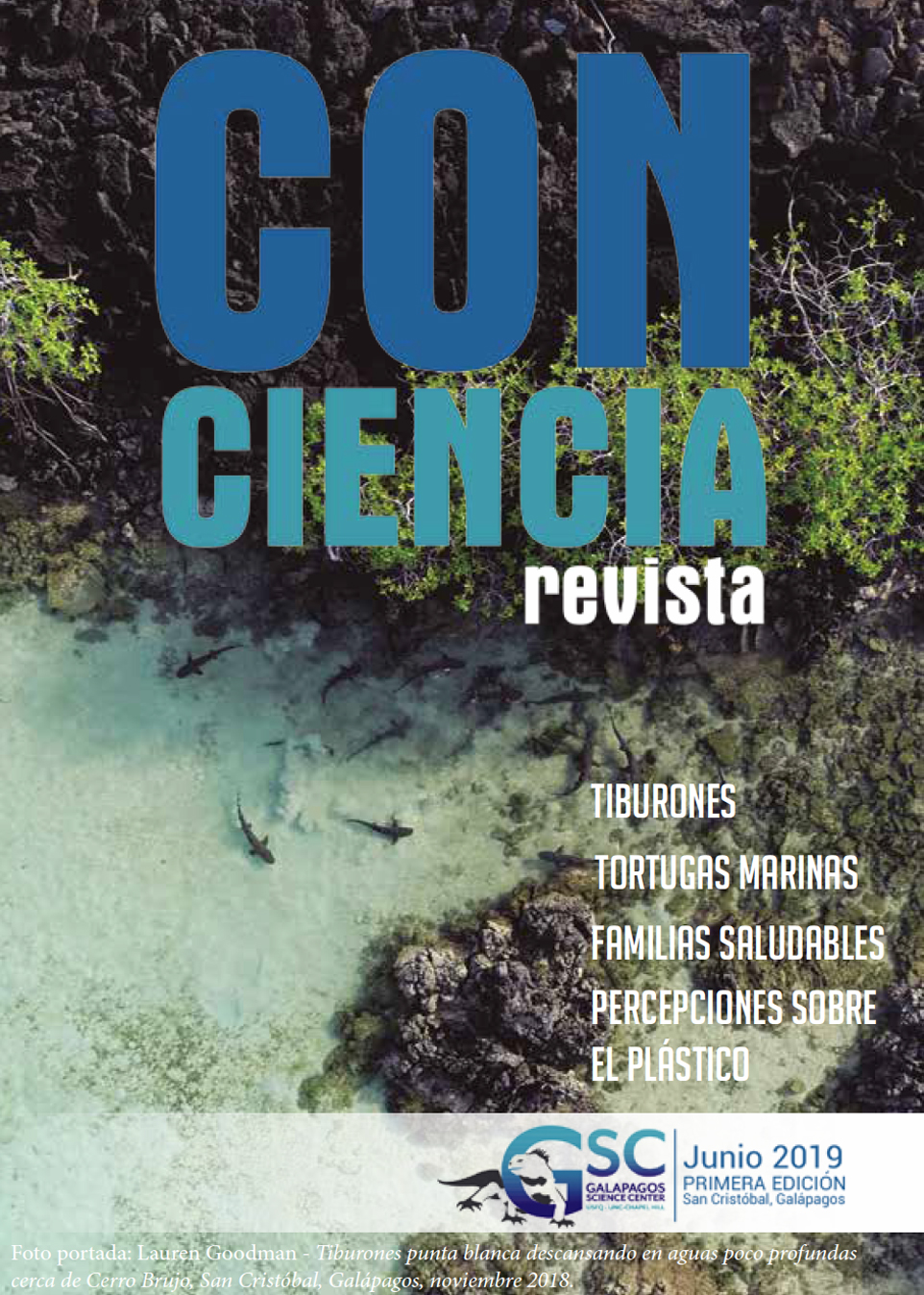NOTICIAS Y EVENTOS
ÚLTIMAS NOTICIAS
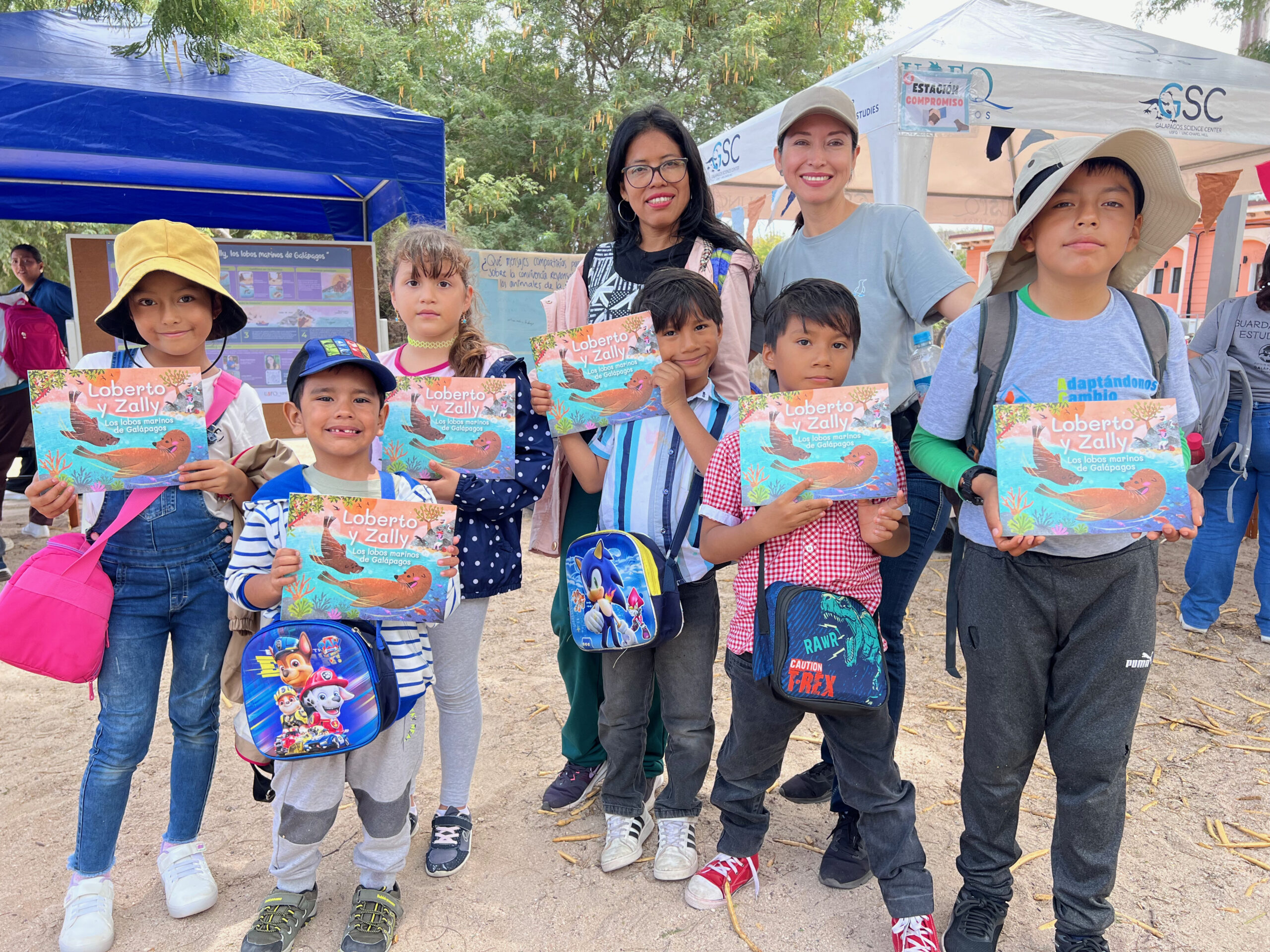
Conectando a la comunidad con la naturaleza: un programa para la conservación en Galápagos cierra su sexta fase con éxito
Con el propósito de fortalecer la conciencia ambiental y promover la conservación de los recursos naturales del archipiélago, el Galapagos Science Center (GSC) y el Galapagos Conservation Trust desarrollan desde 2019 el programa “Conectándose con la Naturaleza” (PCCN). Esta iniciativa ha impactado a más de 9,100 personas de la comunidad de la Isla San Cristóbal, fomentando la conciencia ecológica a través de actividades recreativas y formativas dirigidas a niños, jóvenes y adultos.
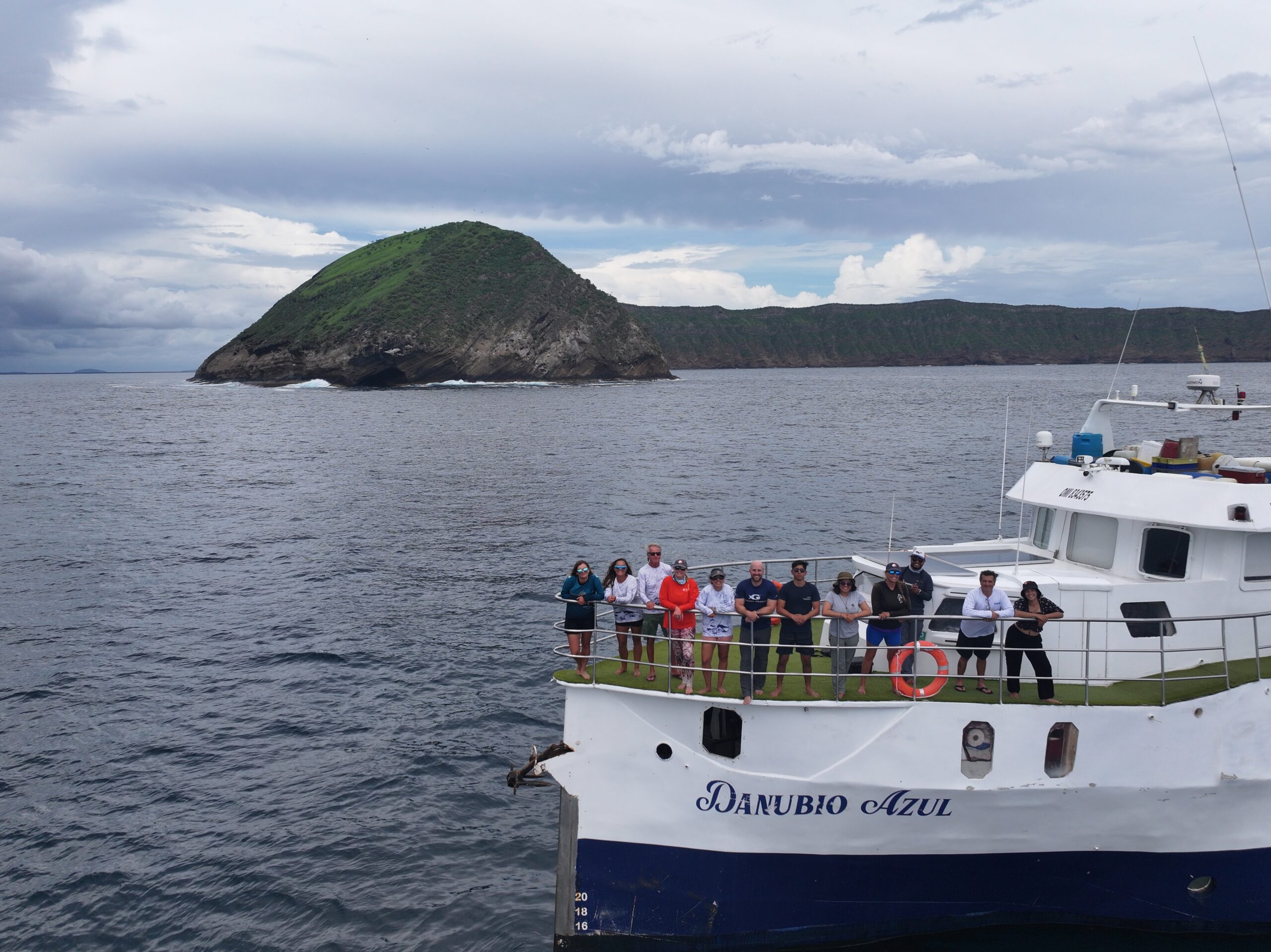
Expedición científica estudia varias especies de megafauna en Galápagos
La Dirección del Parque Nacional Galápagos (DPNG), en colaboración con la Universidad San Francisco de Quito (USFQ), el Galapagos Science Center (GSC) y Proyecto Mantas Ecuador (PME), llevó a cabo una expedición científica en el Sur y Este de la Isla Isabela. Con el respaldo de Brookfield Zoo Chicago’s Sarasota Dolphin Research Program, Mote Marine Laboratory, Georgia Aquarium y Ocean Tracking Network, la investigación permitió levantar información para al menos cuatro proyectos de investigación.
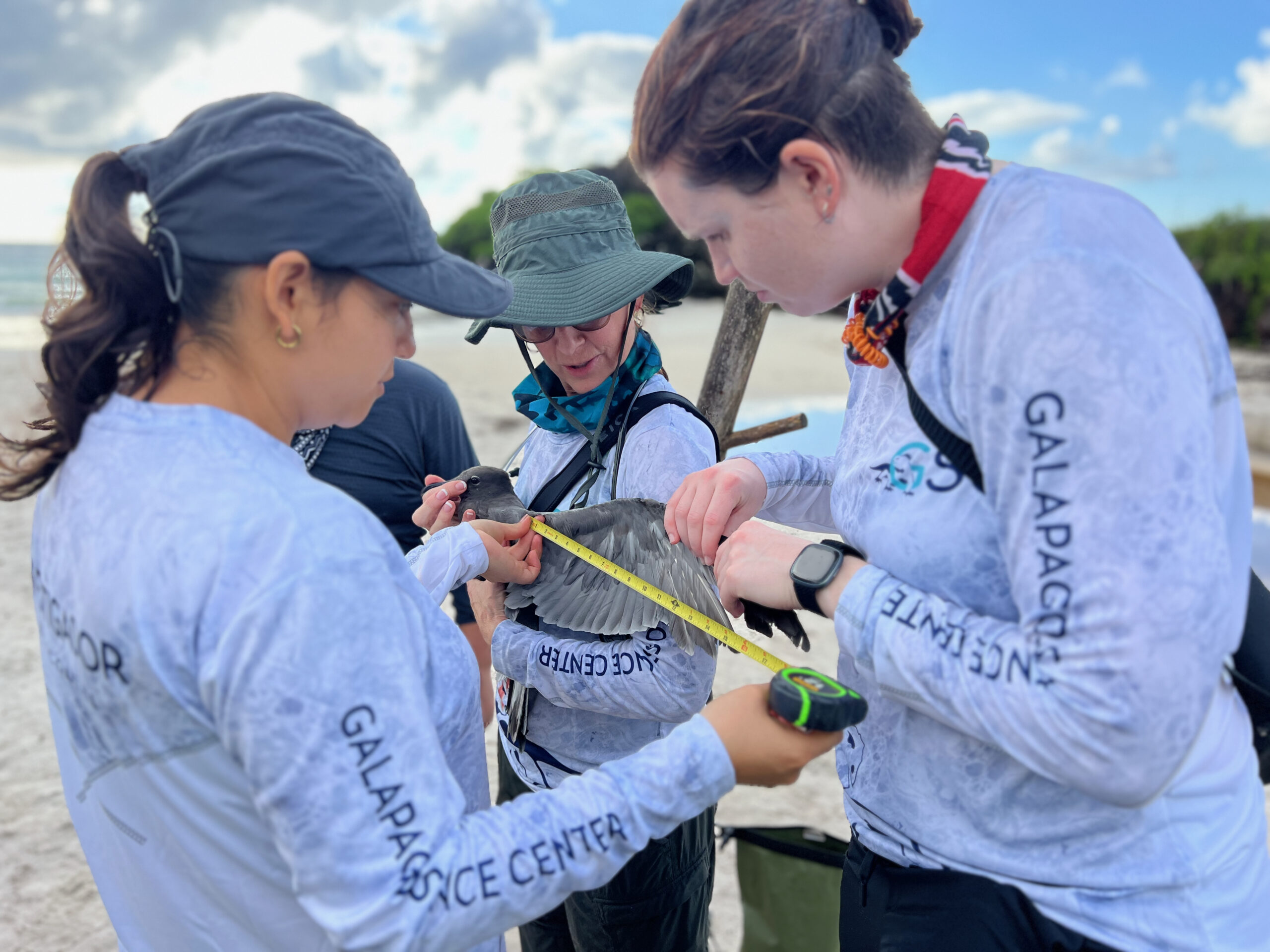
Una década de ISLAVET: Ciencia en acción para la conservación de Galápagos
El programa ISLAVET concluyó con éxito su décima edición, consolidándose como una iniciativa importante para la ciencia y la conservación en el archipiélago. En esta ocasión, un equipo de 33 personas, compuesto por 23 estudiantes de veterinaria y 10 veterinarios de Estados Unidos, Australia, Reino Unido, Singapur y la Escuela de Veterinaria de la Universidad San Francisco de Quito, participó en investigaciones de campo bajo la dirección de Juan Pablo Muñoz, Diana Deresienski, Gregory Lewbart y Daniela Alarcón, del Galapagos Science Center (GSC).
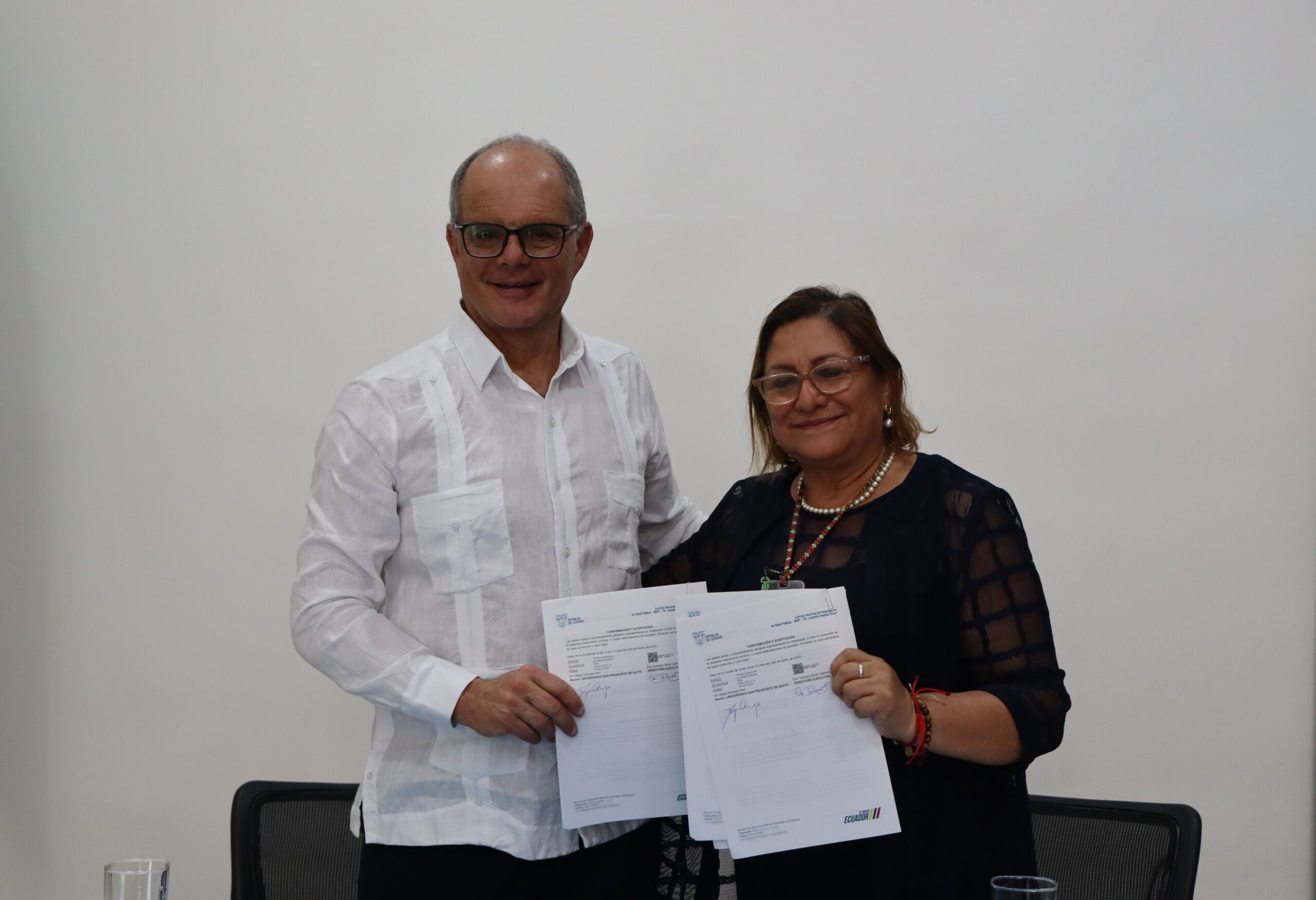
USFQ e INSPI firmaron convenio para fortalecer la investigación científica y la formación académica
La Universidad San Francisco de Quito (USFQ) y el Instituto Nacional de Investigación en Salud Pública (INSPI) “Dr. Leopoldo Izquieta Pérez”, institución adscrita al Ministerio de Salud Pública (MSP), firmaron un convenio de cooperación interinstitucional con el objetivo de fortalecer la investigación científica y la formación académica en el ámbito de la salud pública y vida silvestre en Ecuador.
ARTÍCULOS CIENTÍFICOS
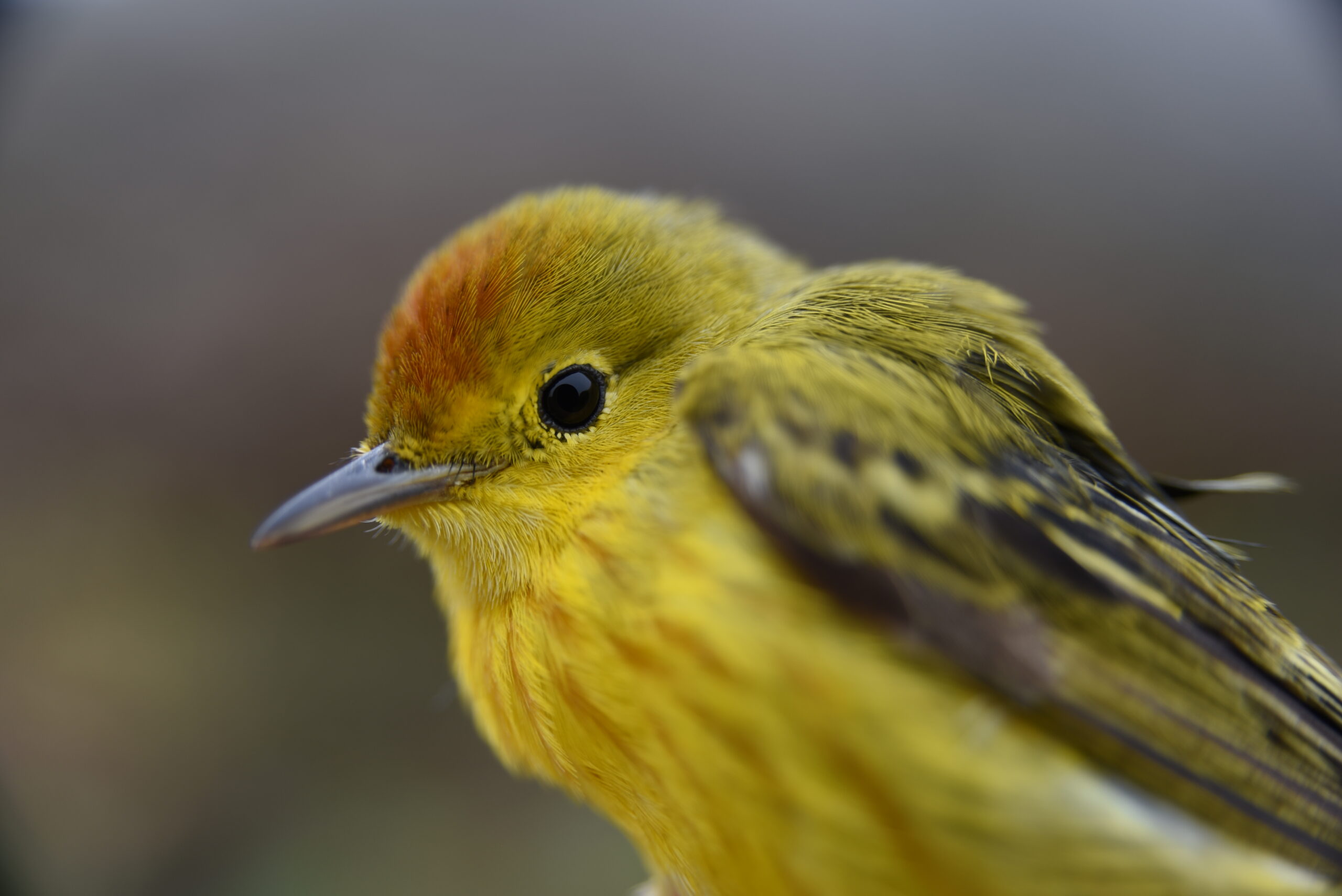
Explorando el estrés y la morfología en dos especies de aves cantoras en hábitats urbanos, agrícolas y naturales de la Isla San Cristóbal, Galápagos
En este estudio se analizó cómo los cambios en el uso del suelo afectan a dos especies de aves de Galápagos: el pinzón terrestre pequeño (Geospiza fuliginosa) y el canario maría (Setophaga petechia aureola). El objetivo fue comprender si las alteraciones en el hábitat, causadas por la urbanización y la agricultura en islas pobladas por humanos, influyen en su tamaño, peso y niveles de la hormona denominada corticosterona, que está relacionada con el estrés.
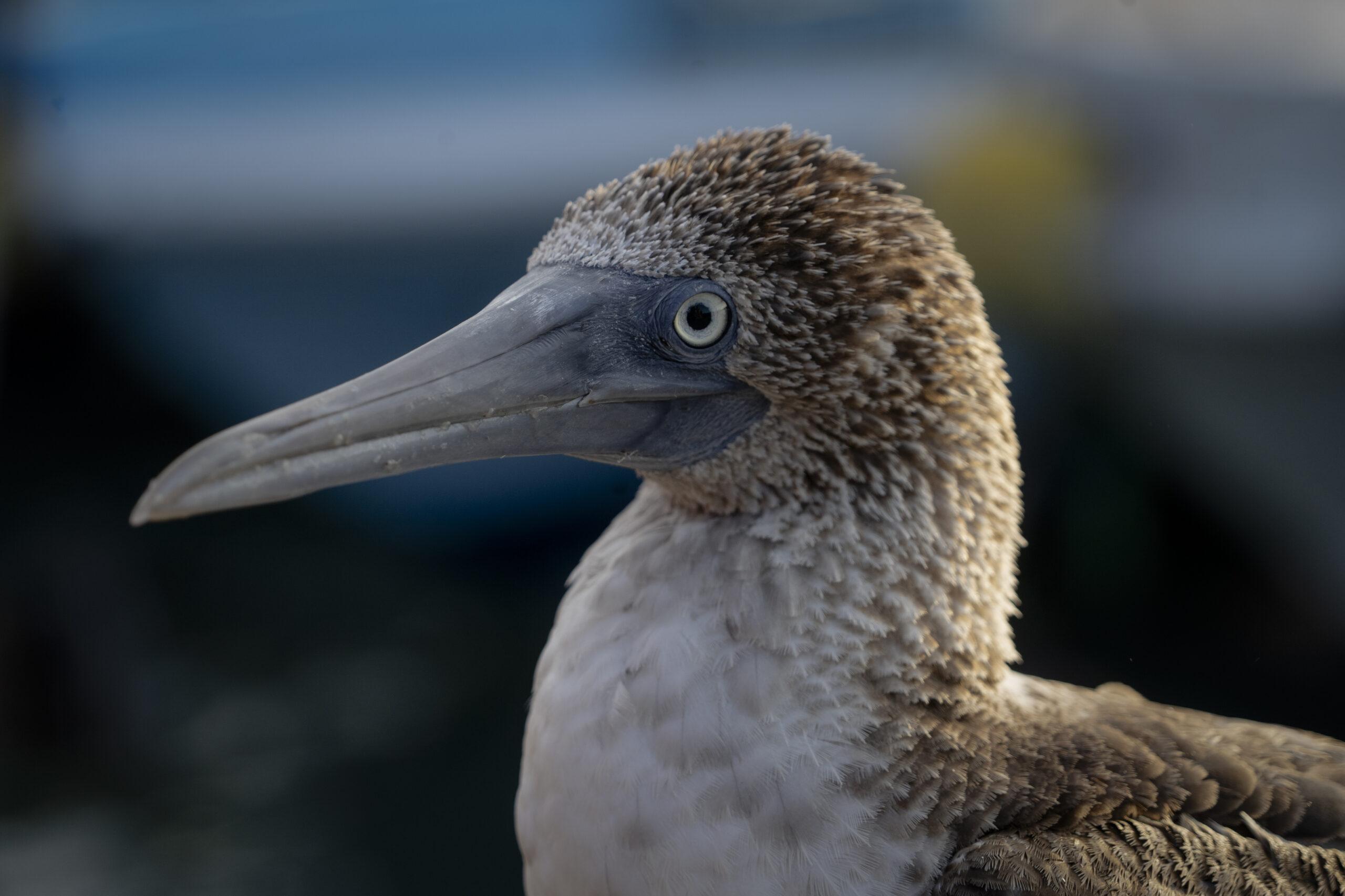
Evaluación de salud del piquero de patas azules (Sula nebouxii excisa) a través de hematología, bioquímica, gases sanguíneos y examen físico en las Islas Galápagos
El piquero de patas azules (Sula nebouxii excisa) es una especie emblemática y endémica de las Islas Galápagos. Aunque ha sido ampliamente estudiado por su comportamiento y biología reproductiva, poco se conoce sobre su salud en estado silvestre. Este tipo de información es crucial para entender cómo factores ambientales pueden afectar su bienestar, especialmente en un contexto de cambio climático y disminución de presas. El reciente estudio busca aportar datos de referencia sobre la salud de la especie, lo cual puede contribuir a estrategias de conservación.
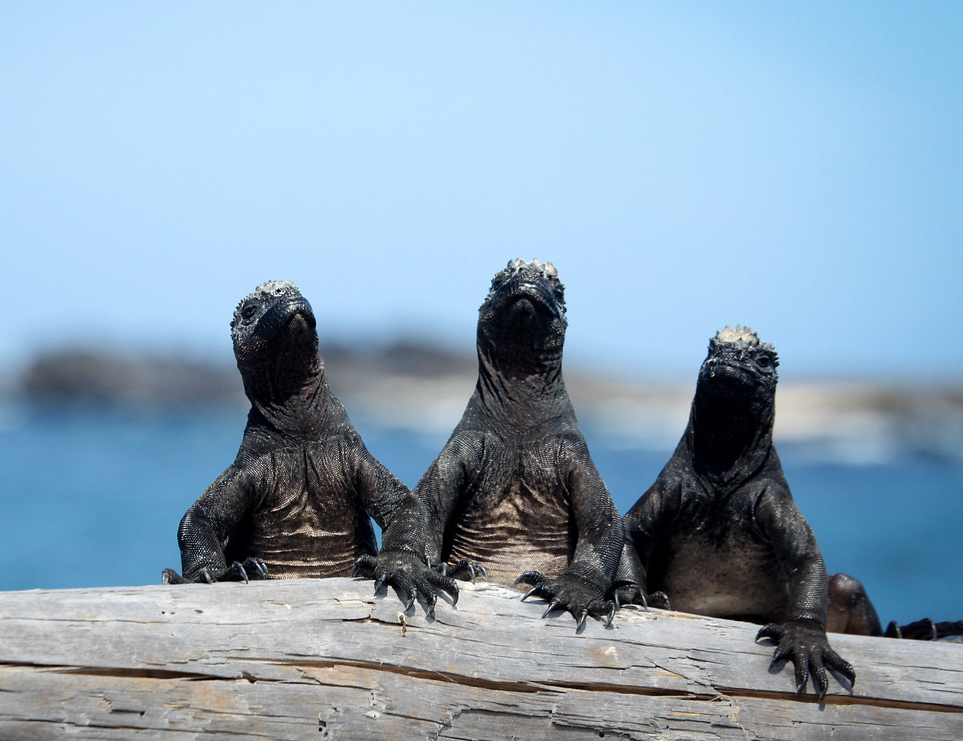
Cambios en la frecuencia cardíaca de la iguana marina (Amblyrhynchus cristatus) sugieren una reducción del metabolismo durante los eventos de El Niño
Las iguanas marinas de Galápagos (Amblyrhynchus cristatus) tienen la capacidad de reducir su ritmo cardíaco para ahorrar energía en su cuerpo, una adaptación adquirida para enfrentar el evento climático de El Niño. Durante estos períodos, el aumento de la temperatura del océano provoca la disminución de algas, su principal fuente de alimento, lo que representa un riesgo para la supervivencia del único lagarto marino del mundo.
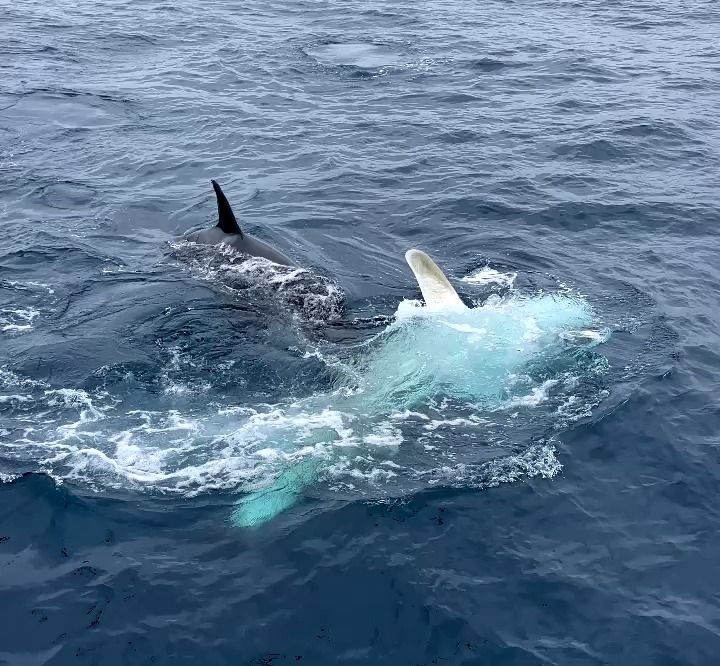
Eventos de depredación eventual de la orca (Orcinus orca) sobre el tiburón ballena (Rhincodon typus) en el Pacífico Tropical Oriental
Las orcas (Orcinus orca) son reconocidas como uno de los depredadores más versátiles del océano, pero su comportamiento en aguas tropicales continúa siendo un misterio. Este estudio documenta, por primera vez, ataques de orcas a tiburones ballena (Rhincodon typus) en Ecuador y Panamá, proporcionando información relevante sobre sus estrategias de caza en el Pacífico Oriental Tropical (ETP). Comprender estos eventos es fundamental para ampliar el conocimiento sobre la dinámica de este depredador en la región.
EVENTOS
6TO SIMPOSIO DE INVESTIGACIÓN Y CONSERVACIÓN DE GALÁPAGOS
Puerto Baquerizo Moreno, en la isla San Cristóbal, fue la sede del VI Simposio de Investigación y Conservación en Galápagos. Este importante evento multidisciplinario, que se llevó a cabo los días lunes 15 y martes 16 de julio de 2024 en el Centro de Convenciones Charles Darwin, fue organizado por el Galapagos Science Center gracias al auspicio de la Universidad de Carolina del Norte en Chapel Hill y la Universidad San Francisco de Quito, y con el aval del Parque Nacional Galápagos.
5TO SIMPOSIO DE INVESTIGACIÓN Y CONSERVACIÓN DE GALÁPAGOS
Puerto Baquerido Moreno, en la isla San Cristóbal, fue la sede del 5to Simposio de Investigación y Conservación en Galápagos. En este importante evento multidisciplinario, se tuvieron presentaciones científicas y de interés de la comunidad, en las que se expusieron principalmente investigaciones e iniciativas relacionadas con la conservación, cambio ambiental, biodiversidad y océanos, salud e iniciativas comunitarias.
World Summit on Island Sustainability
En 2022, el Galapagos Science Center (GSC) y la Iniciativa Galápagos de la UNC y la USFQ celebraron su décimo aniversario. El GSC organizó la Cumbre Mundial sobre Sostenibilidad Insular del 26 al 30 de junio de 2022 en el Centro de Ciencias de Galápagos y el Centro de Convenciones Comunitario en la Isla San Cristóbal.
Lee nuestra Revista Epub edición 2024
Lee nuestra Revista Epub edición 2023
Lee nuestra Revista Epub edición 2022

